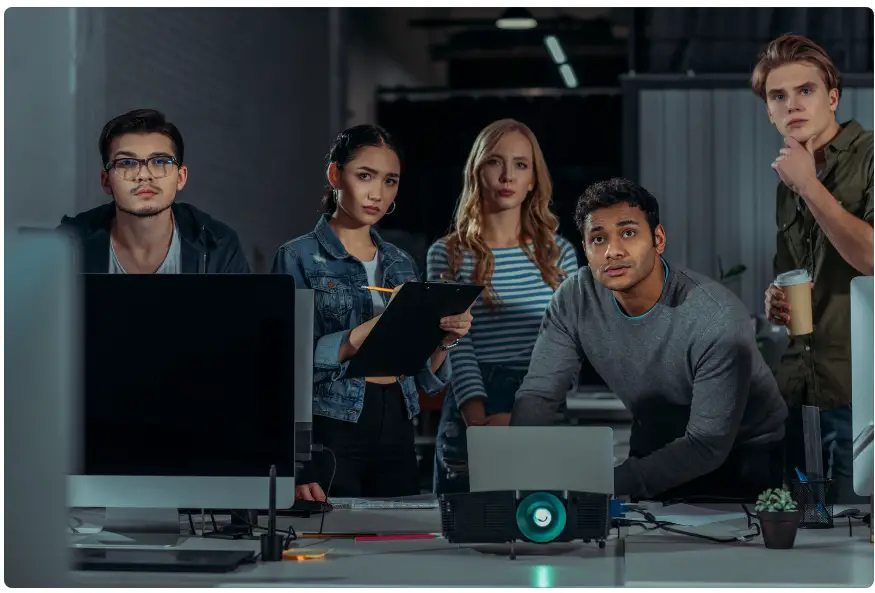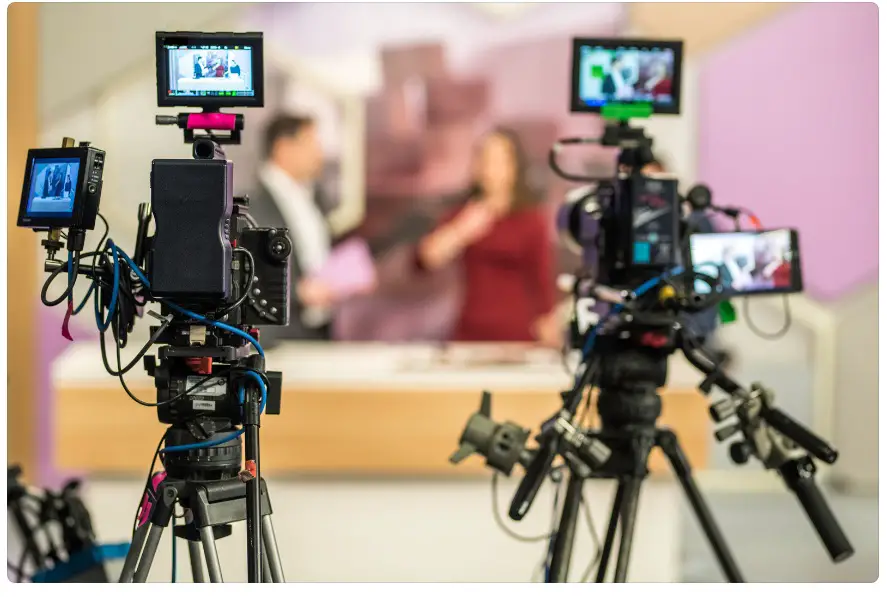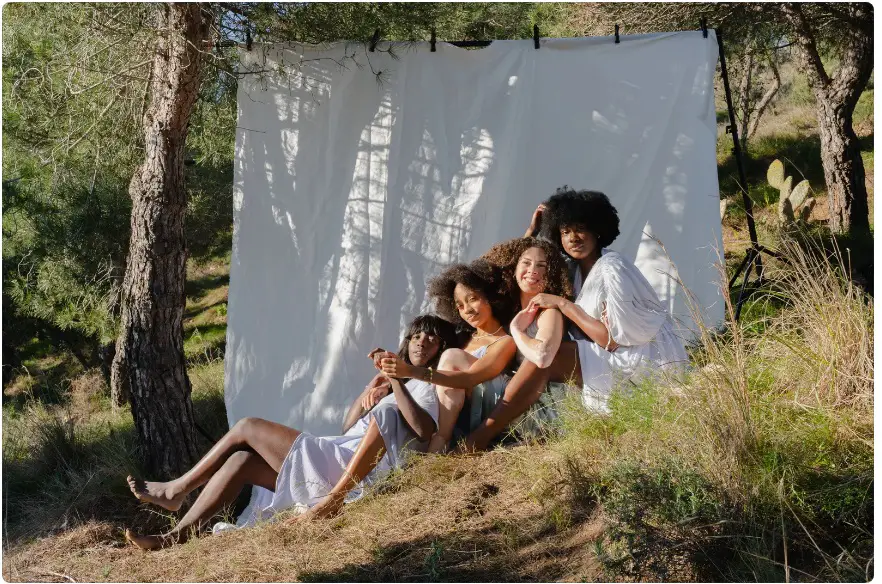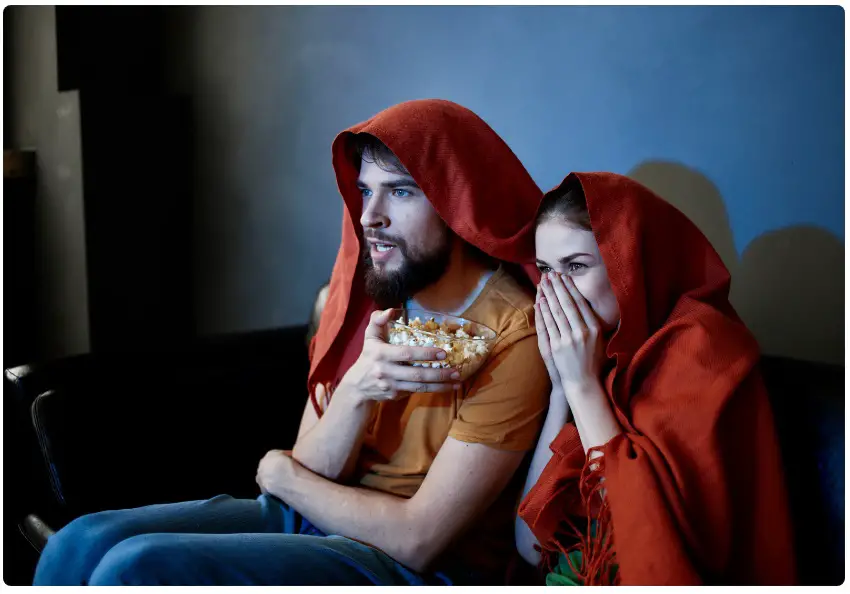Reality television has exploded in popularity over the past few decades, with dozens of shows airing on a variety of networks. From competition series like “Survivor” and “The Bachelor” to docuseries like “Keeping Up with the Kardashians” and “Jersey Shore,” reality TV has something for everyone. If you’re interested in getting cast on a reality TV show, having a strong social media presence can be a major advantage. Here’s why:
Contents
The Role of Social Media in Showcasing Variety for Reality TV Casting
The role of social media in spotlighting variety for reality TV casting, has been one of the game-changing factors in the television industry in recent years. As the curtain lifts on reality television shows, and audiences worldwide get a VIP login subscribe to their favorite shows, we observe the profound influence of television social media on the casting process. This emergence of media platforms as pivotal blocks in the casting process can be attributed to their reach, accessibility, and dynamism, making them more akin to a startup social media enterprise than a traditional casting agency.
In viewing reality TV casting through the lens of social media platforms, one notices a shift from the customary closed-door auditions to a more inclusive and participatory method, open to people from different walks of life. The possibilities are endless – from providing a job to a potential cast member through online talent hunts, to introducing diverse and unseen faces to mainstream television audiences. And it’s not just about the casting; the media platforms also shape the narrative and content of reality shows, by taking into account the changing nature of audience participation and active viewership.
It’s fascinating to see how the influx of social media has reinvented the casting of various media, particularly in the realm of reality TV. Influencers armed with massive followings are often cast in reality shows, not just for their individual charm but also for their significant social media presence, referred to as ‘casting influencers’. These individuals bring a new element to the show, reaching the viewer’s screen not only through the television but also through their multiple engaging social media updates. The widespread reach of social media platforms has thus become a critical factor in casting for reality TV.
Moreover, social media promotes a sense of inclusivity by functioning as a democratic platform where viewers can share their opinions, interact with the cast, and even shape the narratives, contributing to the read and outreach of a series. As a result, social media platforms are instrumental in the scripting, casting, production, and promotion of reality television shows.
Reflecting on the recent trends and evident rise in significance, it’s clear that media, specifically social media platforms, are no longer peripheral to the television industry. Instead, they are central players, directly impacting the making of a successful reality TV series. What social media underlines, above all, is the importance of viewer engagement and authenticity in the age of reality TV. It goes without saying that the nature of reality TV casting will continue to evolve in pace with the ever-changing social media landscape, and it’s an exciting journey to follow.

Activating Your Social Media Accounts to Exhibit Love for Reality TV Shows
The age of social media has notably enhanced audience participation and active viewership in television, particularly in reality TV shows. The evolution of media, particularly social media, has played significant roles in transforming reality television into an interactive experience that thrives on people’s engagement. Once regarded as passive consumers, viewers now actively help shape the narrative of shows such as Love Island, substantiating their love and passion for the show through their media accounts.
Up until now, the primary interest in exploring how social media influences television shows has been in the process of casting. The buzz about potential candidates is often instrumental in shaping the lineup of the next season’s show. The curiosity of millions of fans around the world builds up much before the show hits the television screens.
Tuning in to your favorite television show is no longer enough. Active viewership demands fans to express their opinions, share interpretations, and connect with the show’s characters on social media platforms. This type of involvement helps viewers convert their icon account print into digital indicators of how people engage with these television shows.
Social media accounts also function as platforms for reality TV shows to disseminate information about the show, interact with viewers, and stimulate conversation among fans. Critics and audiences are allowed to voice their thoughts and opinions in real-time, drastically influencing the popularity and direction of a show.
Nevertheless, activating your social media accounts to show love for reality TV shows is somewhat of a self-publishing phenomenon. Fans get to voice their emotions, theories, predictions, and reactions and share them with fellow fans, and possibly, the cast and producers of the show. This process is exceptionally evident with shows like Love Island, where audience participation plays a key role in selecting the eventual winners, shaping their media journey right from the beginning. Love for the characters becomes a tangible entity that can lead to potentially significant consequences on the show.
On a final note, a word of caution maintains relevancy – remember to keep your email private when you use social media platforms. While it’s of great fun engaging in conversations around the television shows you love, it’s also essential to protect your privacy. In this digital age, your love for the show, digitally shown through social media, does require some level of responsibility. Thus, reality television and social media are interconnected, with media continually reshaping the way we consume, interact with, and understand our favorite shows.
Reading Social Media to Get Noticed by Reality TV Casting Directors
Asia Edition Global has witnessed an unprecedented expansion of reality TV shows, made possible in part by the rise of social media platforms, such as Instagram and Twitter. This powerful conjunction of media has revolutionized how casting directors scout for unique personalities and talents. In today’s television world, your social media influence is just as critical as your acting skills and star potential. It could be the defining factor that gets you cast in a hit reality TV show.
Ask any casting director, and they’ll tell you about the importance of an engaging social media presence. At its core, reality TV is about real people. By engaging in social media in a bold and authentic way, you give these directors a glimpse into your everyday life and personality. Awallenstein Variety Print, a leading voice in entertainment journalism, has explored this phenomenon extensively. They concluded that the power of social media is an influencing factor in casting decisions.
Yet, utilizing social media for casting your reality TV cast is not just about amassing a large following. It’s about showing the casting directors, producers, and, more importantly, the audience, an unfiltered look at who you genuinely are. The casting directors are always in search of individuals who can connect with people on a personal and relatable level. This is where the beauty of social media lies. It allows common people to share their lives and stories with the world, and if those stories are compelling enough, they could become part of our favorite reality TV shows.
Social media platforms such as Instagram and Twitter are perfect for casting directors to get a sense of your ‘brand.’ If your online presence stands out, it can greatly improve your chances of being noticed and subsequently cast. It’s crucial to understand the difference between media platforms and utilize each one to its highest potential, always remembering to stay true to your personal brand. Remember, it’s not just about popularity; it’s about authenticity and relatability.
Reflecting on the evolution of reality TV casting, it’s clear that social media has a crucial role to play. Casting directors are increasingly turning to these spaces to find the next breakout reality TV star. However, it’s not just about presenting an idealized version of yourself online. It’s about showcasing your genuine personality, which has a much higher chance of connecting with a broad audience. Media can amplify, but authenticity resounds.

How Filmmakers Use Social Media to Determine Reality TV Show Value
Reality TV shows have cemented their position in the media, driving viewers and shaping societal trends. An integral actor in this evolution is social media, specifically Instagram – a platform used not only to share glimpses of our day-to-day lives but to voice our interests, opinions, and as of late, to potentially be cast in a reality show. The media’s loudest voices have become a hodgepodge of influencers, bloggers, and Googled amateurs with captivating stories to tell and personalities to share. The purpose of Instagram social media in this context is dual – casting directors use it as a pool of potential cast members, while viewers use it as a portal into the behind-the-scenes world of their favorite reality TV series.
Previously, Reality TV operated on talent and personalities made by formal audition. Today, however, social media platforms like Instagram, have disrupted traditional casting practices. Filmmakers are mining for talent within the vast expanses of the digital world, recognizing the potential it holds for reality TV. Audiences, too, have shifted their perspective, often finding the intimate, raw moments captured on personal social media feeds more compelling than scripted scenes. With the viewers’ newfound power, they can boost niche interests to relevance through hashtags, likes, comments, and shares. This, in turn, impacts which shows are commissioned, how they are produced, and who stars in them.
Love for reality TV has pervaded our culture, and Instagram has become the meeting point for people who wish to read about prospective shows, discuss ongoing series, or merely to marvel at its spectacle. Many find satisfaction in following their favorite actors behind-the-scenes, gaining unprecedented access to information that previously remained buried under layers of formal film procedures. Shows have leveraged this trend to their advantage, hosting lives and AMAs, launching teasers and sneak peeks, and even announcing auditions via social media.
As the reality TV landscape evolves, it is clear that Instagram and other social platforms are playing a significant role in shaping its future. With every post shared, every email sent, every blog read, audiences influence the direction of their favorite shows. While this has sparked debates regarding the implications of such power vested in the viewers, it continues to transform how casting decisions are made, how shows are marketed, and how reality TV is perceived in April and beyond.
Viewers are no longer passive consumers of reality TV shows but rather essential components of their production, with social media as the conduit connecting them. Armed with hashtags and likes, reality TV lovers are molding the future of the media they consume, boosting niche series into mainstream conversations and challenging conventional boundaries. In the process, Instagram social media has redrawn the boundaries of reality TV, proving that the end of each episode is only just the beginning.





